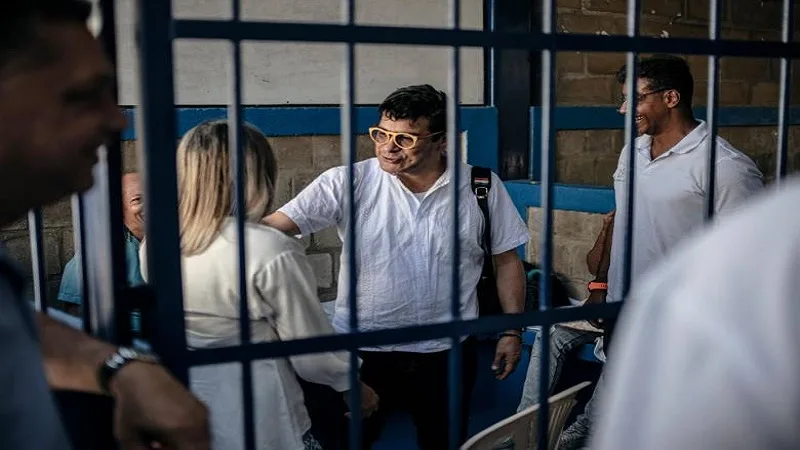The emissaries of the Government have moved “like Pedro around his house” in various prisons in the country: transfers of bosses, promises and divisions. This is how the peace of President Petro moves.
On January 18, a dialogue table for total peace will be set up in the Itagüí maximum security prison. It will be made up of various crime bosses from Valle de Aburrá who arrived at the prison in the last days of December.
The entire movement was made by the office of the High Commissioner for Peace. José Leonardo Muñoz Martínez, alias Douglas; Juan Carlos Mesa Vallejo, aka Tom; and Albert Antonio Henao Acevedo, alias Albert, who at the time were the strong men of the Oficina de Envigado and the latter was the boss of the Pachelly gang. The three of them can summarize the narco that prevails in the Aburrá Valley.
It is expected that another 16 capos will arrive in Itagüí this week from more prisons in the country, thus the table with which President Gustavo Petro wants to bring peace to Medellín would be ready. All these movements have been done with the utmost secrecy, in large trucks and with the consent of supposed social leaders. The secrecy and the back and forth letters have brought a strange illusion for the capos: they believe that they can be released, supposedly it has been a promise that has come to them directly from the links they have with the Government.
Apparently, various bosses have been told about having the benefit of the freedom to negotiate peace under Decree 1081 of 2015. This is the same Decree with which the High Commissioner for Peace, Danilo Rueda, asked the prosecutor Francisco Barbosa to lift the arrest warrants for 16 criminals from the Clan del Golfo and Los Pachenca – a gang that controls illicit businesses in Santa Marta and the Sierra Nevada – a request that was flatly denied.
Regarding the Prosecutor’s refusal, in a more than obvious move because no one would give political status to groups proven to be dedicated to drug trafficking and extortion, Minister Alfonso Prada had nothing more to say than say that they respect the autonomy of the powers and that they will continue in the search for peace “with the organizations to which political status is recognized and with conversations with high-impact, armed and criminal structures that move in the illegal economy with a view to advancing in this process of submission.”
The most delicate issue in this story that has been brewing in the prisons since the days of the presidential campaign is that in the corridors of the La Picota prison – in Bogotá – it is rumored that various bosses have allegedly been asked for a lot of money to the management of peace, procedures that would include the lifting of arrest warrants. The truth is that even the extraditables have been in communication with the Casa de Nariño to ask for clues and, above all, not to send them to the United States.
In November, representatives of the National Government installed the Peace Human Rights Roundtable in La Picota under resolution 046 of 2022 issued by the High Commissioner for Peace in order to assess the intentions of the gangs; The table has gone unsuspected during this time and it was a master move, since in this way the Government entered into dialogues with those who have promoted the drug trafficking business and those who continue in one way or another with power within the criminal structures.
